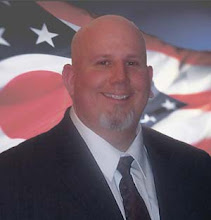This may not be the most pressing issue our society faces but the smoking ban here in Ohio is a microcosm of the overall battles to preserve individual liberties and eliminate wasteful, inefficient legislation.
A decision rendered February 19 by Franklin County Common Pleas Judge David E. Cain has helped to take the teeth out of Ohio progressives’ efforts to legislate personal behavior while giving them to libertarians.
The case involved a bar in suburban Columbus that was challenging the $30,000 in fines that it has racked-up. Needless to say, attorneys for the state have announced they will file an appeal.
According to the Columbus Dispatch, as part of Cain’s ruling he declared the state’s smoking ban enforcers unfairly target bar owners while ignoring individual smokers themselves, who in all reality serve as the sources of non-compliance.
Cain wrote in his ruling, “Would the (Ohio) Department of Health require property owners to pat down visitors for cigarettes before they are allowed to enter? Would it have property owners remove people via force from the premises at risk of personal injury?”
His message, rooted in common sense, is as true as it is simple: government cannot punish someone for the offenses of someone else.
Here’s the other rub on this story. Since the ban went into effect May 2007 after a statewide vote the preceding year, the State of Ohio has issued approximately $1.2 million in fines for smoking ban violations in open-to-the-public establishments and other workplaces. In that process the state health department has spent approximately $2 million to enforce it.
To state the obvious (as I do so well), in an effort to save us all money progressives have added roughly $800,000 to the cost of Ohio’s existence during a time when money is tight for government, businesses, and taxpayers everywhere.
The Dispatch also reports the ban stipulates a $100 fine for any individual who smokes in a bar, restaurant, or other such locale. However, according to a state Health Department spokeswoman enforcers have not issued citations to non-compliant patrons because they must observe a person both smoking and disobeying a bartender (or other staff person) who tells them to either put out their cigarette or leave. “The way the law was set up makes it difficult to cite individuals,” said Sara Mormon of the Health Department.
I would be willing to wager that under the current political climate, the State of Ohio will continue its reluctance to pursue individual smokers – especially with this being an election year for both Governor Ted Strickland and the majority of the state’s legislators.
The fact that public employees have been focusing on businesses while de-emphasizing enforcement among individuals is very telling. If the agenda driving this ban truly is about protecting Ohioans from “the negative health effects of smoking and secondhand smoke,” then there would be no disparity with issuance of fines over these last three years.
Enforcing the state’s laws falls squarely on Ohio’s executive branch. In essence, the buck stops with Strickland.
Our glorious collection of state politicians has put themselves in an entertaining pickle. Proponents of the smoking ban touted in 2006 that revenue generated would be one of the key ways Ohio could offset all the public costs caused by smoking. Logic would dictate expanding enforcement efforts as described above would go far to bridge that $800,000 gap – and then some possibly.
Ohioans also are supposed to be enjoying a reduction in health insurance premiums as a result of the ban – in a manner similar to how seat belt laws are purported to keep down the cost of auto insurance in states which enact them. An effective assessment of this so-called benefit to the public smoking ban has yet to surface.
Finally, as has been pointed out time-and-again on the issue of the state’s tobacco taxes, middle and lower class income earners get the biggest bites taken out of their wallets from each tax hike on a pack of cigarettes.
So, who’s willing to put their election hopes on the line to gouge smokers across Ohio, one at a time, for another $100-a-pop?
Subscribe to:
Post Comments (Atom)

No comments:
Post a Comment